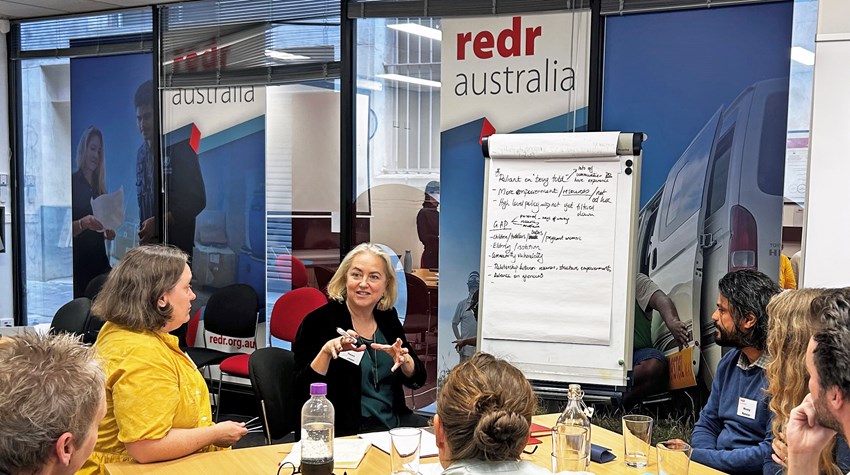In October last year, RedR Australia invited both domestic and international emergency management experts to our inaugural knowledge-exchange workshop.
With so much knowledge of good practice in both the international humanitarian sector and the Australian emergency management sector, the workshop aimed to share this wealth of experience.
The workshop’s participants were drawn from RedR Australia’s vast network of humanitarian deployees and trainers. Their combined experience spanned a wide range of contexts, including the United Nations, international NGOs, Australian Red Cross, Country Fire Authority, Emergency Management Victoria, and state and local governments.
RedR Australia’s CEO, Dr. Helen Durham said, “the emergency sector in Australia does amazing work. As international humanitarians, we have also seen great examples of disaster management from around the world. So the workshop was all about bringing together a diversity of views.”
Given the increasing flow of emergencies in Australia and globally, RedR Australia has long considered how we can better share knowledge between the two sectors. We hope this is the beginning of a long series of knowledge-exchange workshops.
Sharing our learnings
The key learnings from the workshop have been shared in an article by workshop facilitator, Peter Grzic. The article, titled Connecting learning from a world of emergency experience, was published in the January 2024 edition of the Australian Journal of Emergency Management.
“It’s exciting to bring together experts with so much experience in both the domestic and international disaster-response spheres,” said Peter. “Lots of people at the workshop commented that this is a much-needed forum, so I’m hoping this will be the start of a long journey of knowledge sharing.”
Key recommendations
The participants’ key recommendations for adoption in Australia included:
- Promote the use of global standards and guidance within Australia.
- Introduce coordinated assessment of the needs of affected people, based on a recognition of the diversity of the population and the holistic impact of the emergency.
- Improve and expand emergency management training for organisations not typically involved.
- Improve situational awareness for relief and recovery by using inter-agency information management tools and systems used in humanitarian response.
- Strengthen coordinated advocacy from the non-government sector through dedicated forums that promote learning from international experiences.
We’re keen to keep the discussions going and create more opportunities for valuable knowledge sharing, with the next workshop coming soon.
Read the full article in the Australian Journal of Emergency Management.


